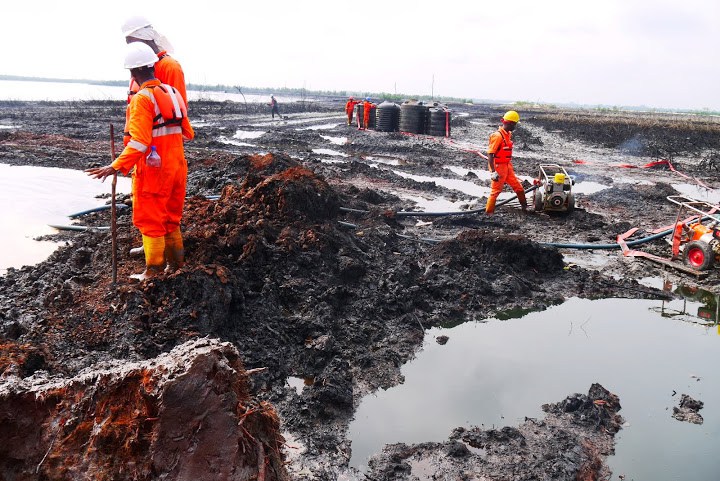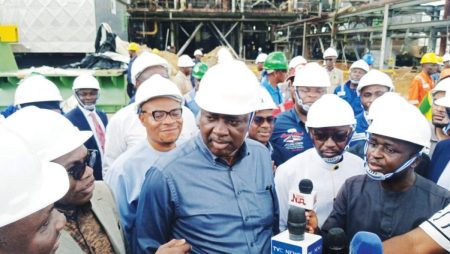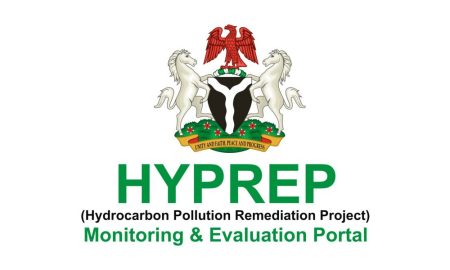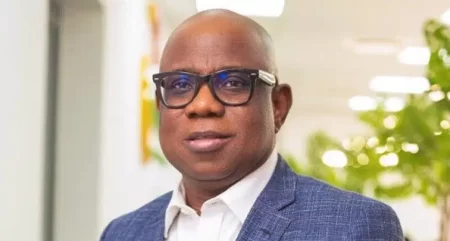
Mkpoikana Udoma
Port Harcourt — The Hydrocarbon Pollution Remediation Project, HYPREP, should be blamed for the slow pace in the implementation of the UNEP Report in Ogoniland, four years after the President Muhammadu Buhari-led administration flagged off the project.
Recall that Vice President Yemi Osinbajo, on June 2nd, 2016 flagged of the commencement of the clean-up of oil impacted sites in Ogoniland, and the concomitant implementation of UNEP recommendations, to paved the way for the cleanup of other polluted sites in the Niger Delta region.
UNEP had recommended the removal of contaminated crude from the soil; provision of potable water as an emergency measure; health impact assessment; restoration of livelihoods for the people of Ogoni; an integrated soil management centre for the treatment of contaminated soil; and the building of a centre of excellence, for the study of hydrocarbon pollution in Nigeria.
The Youths and Environmental Advocacy Centre, YEAC, who stated this, said with the current slow pace of HYPREP, the agency may need extra 22years to complete the first phase of Ogoni clean-up project recommended by UNEP instead of five years..
Executive Director of YEAC, Fyneface Dumnamene Fyneface, who charged HYPREP to demonstrate capacity for the benefit of Ogoni people, regretted that four years down the line, neither the cleaning up nor emergency measures has been fully implemented by HYPREP in Ogoniland.
Fyneface, who explained that the non-governmental organization has since been monitoring the project, said HYPREP has admitted receiving the sum of $360million, but spent only $44million in the last four years.
Ogoni clean-up: HYPREP cautions youths against re-pollution
The Advocacy Centre also lamented that the people of Ogoni in the impacted communities, could be at risk of contracting corona virus disease as a result of the non provision of potable water by HYPREP, as recommended by UNEP.
“UNEP recommended in 2011 that the first five years of the Ogoni cleanup project (which started counting on June 2, 2016) would be for the cleaning of contamination from the soil and implementation of emergency measures, while the other 20-25years would be needed for environmental remediation and restoration.
“Between June 2, 2016 and today, June 2, 2020, HYPREP has spent four years out of the first five years of the project earmarked to cost $1billion. Out of the $1billion, HYPREP had received $360 million and out of which, HYPREP said it has spent just about $44million in the past four years.
“Thus, if HYPREP said it has spent only about $44million in the past four years out of the $360million it has so far received then, it would take HYPREP till 2042; about extra 22years more of spending $44million every four years before it would be able to complete the first phase of Ogoni cleanup that UNEP said would take just five years.
“Going by this analogy occasioned by the snail speed of HYPREP which YEAC blamed on lack of capacity, the second phase of the project which is environmental remediation and restoration would start in 2042 and last till about 2064 or 2069 if HYPREP keeps to the pace of work as recommended by UNEP.
“Furthermore, four years down the line, no significant work has been recorded on Ogoni clean up; four years down the line, HYPREP is still demonstrating lack of capacity to use available funds to fast-track Ogoni cleanup as directed by President Muhammadu Buhari.
“Four years down the line, UNEP recommended emergency measures (contaminated soil management centre, centre of excellence, health audit, provision of drinking water, etc.) have not been implemented; four years down the line, Ogoni people are still without adequate sensitization and information about the project.
“Four years down the line, Ogoni people are still drinking polluted water and could be exposed to contracting COVID-19 as they do not have clean and/or running water to wash their hands regularly as recommended by Nigeria Centre for Disease Control, as one of the preventive measures against contracting COVID-19.
“It is against these backgrounds that YEAC will not hesitate to say here that the problem with Ogoni cleanup is lack of capacity in HYPREP, distractions and a vicious circle of management conflict from the Ministry of Environment leading failure to drive the cleanup process.”
The Advocacy Centre concluded that the slow pace of Ogoni cleanup should not be blamed on President Muhammadu Buhari or the Joint Venture Partners, who already have provided the needed funding up to $360million so far.
“YEAC thus uses this opportunity of the 4th anniversary of the flag-off of Ogoni cleanup to call on HYPREP to demonstrate capacity, return to its drawing board and recommence the cleanup according to UNEP recommendations starting with emergency measures and provision of running water for the Ogoni people which is absolutely necessary especially now that WHO has said that COVID-19 is not leaving humanity so soon.
“HYPREP must attempt the demonstration of seeming capacity and use available funds to improve the lives of the Ogoni people through the implementation of emergency measures on the cleanup as recommended by UNEP Report 2011.”



